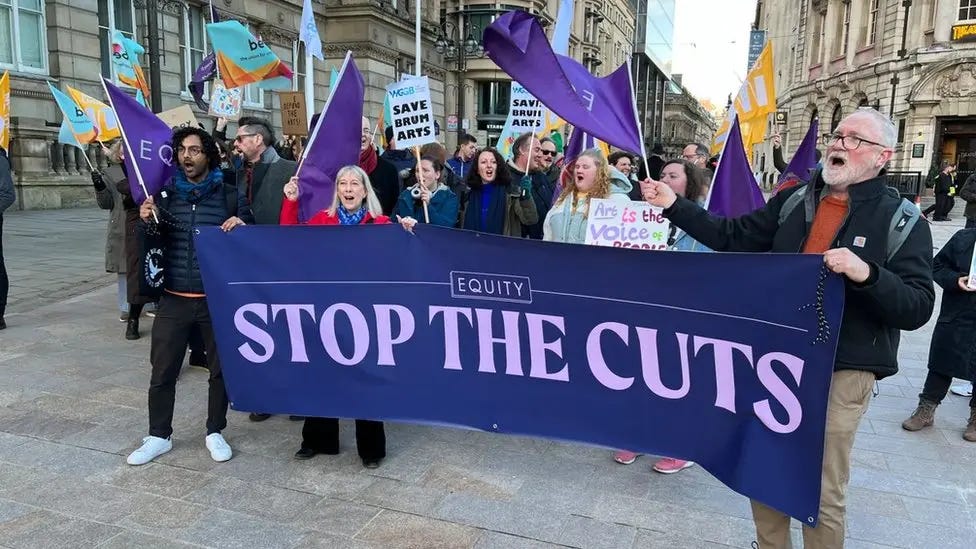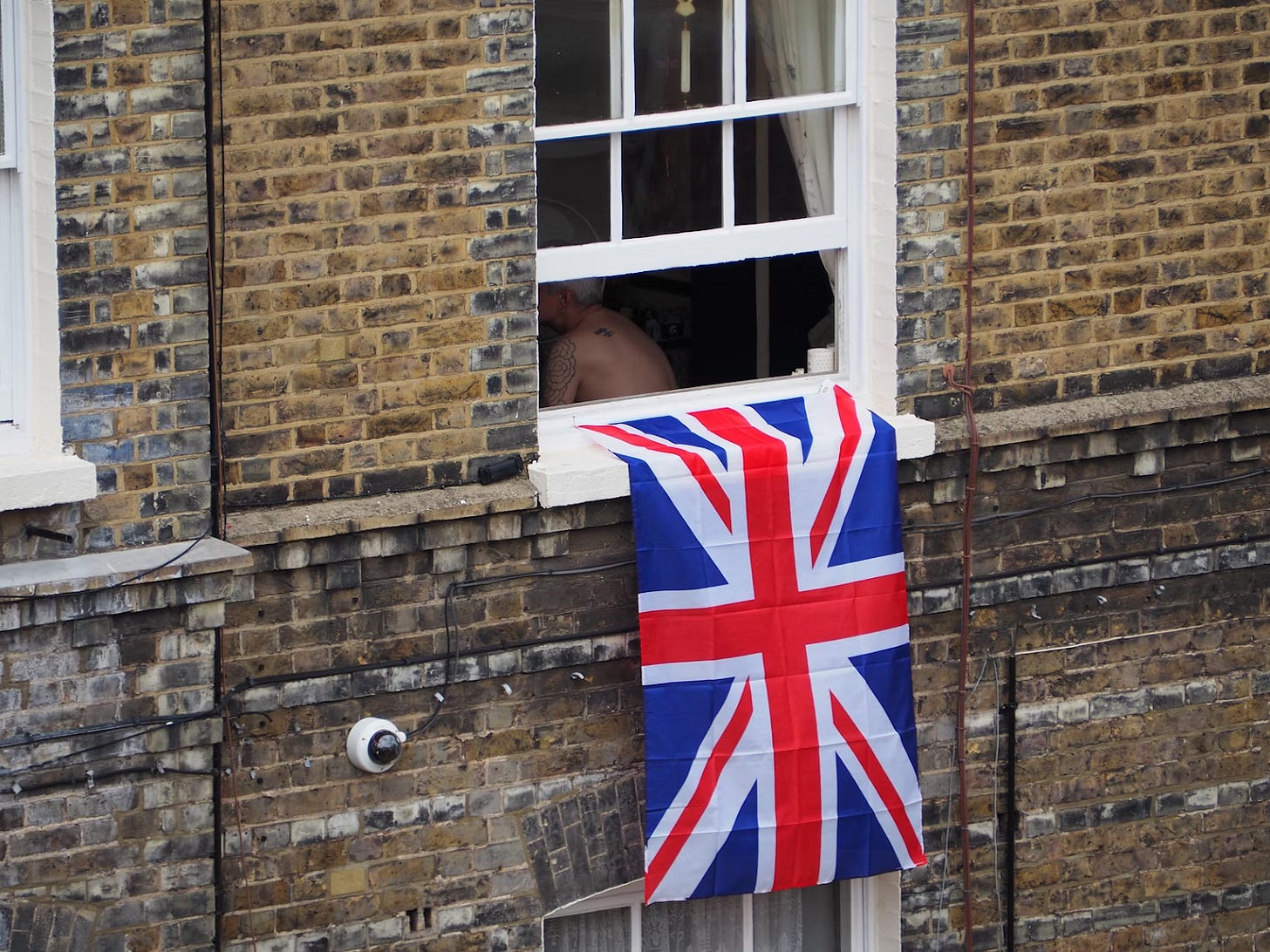How Britain Quietly Became an Island of Strangers
Britain’s fragmented state is a real problem and it’s driven by policy, not immigration.
When Keir Starmer warned that Britain is at risk of becoming an island of strangers, he may not have realised it would become one of the most defining statements of his leadership. In his words:
“Nations depend on rules – fair rules. Sometimes they’re written down, often they’re not, but either way, they give shape to our values … Without them, we risk becoming an island of strangers, not a nation that walks forward together.”
Yet framing immigration as the root of Britain’s social divide misses the mark. Research published in May 2025 by More in Common reveals that 44% of Britons feel like “strangers in their own country,” while 50% report feeling “disconnected from society.”
It is apparent then that Britain’s isolation crisis is real, but it is driven by technology, austerity, and inequality, not immigration.
The Decline of Third Spaces and the Rise of Technology
Modern life increasingly prioritises independence and, by extension, isolation. Bus rides now mean headphones and screens, not conversations with those around you. The world has seemingly shrunk to fit into the palm of our hands. This alienation from our neighbours has ostensibly been expedited by the decline of once-common third spaces: libraries, pubs, and community centres.
Austerity policies have gutted these spaces. Since 2010, nearly 800 libraries have closed and local council funding was slashed by 50%. Between 2018 and 2023, 46 London community spaces vanished. Even pubs, which were seemingly ubiquitous in the United Kingdom, disappeared at a rate of six per week in 2023, according to the British Pub and Beer Association.

As physical spaces dwindle, online ones come in to fill the gap. These online spaces, however, don’t offer the same tangible community that third spaces once provided us. Researches have shown that passive use of social media is linked to higher rates of loneliness.
It seems loneliness has crept its way into the lives of many and little is being done politically to confront this epidemic.
The Campaign to End Loneliness found that 50% of UK adults reported loneliness in 2022. More in Common’s focus groups cite social media replacing face-to-face interactions and the disappearance of physical gathering spaces as primary culprits.
If this tells us anything, it’s that isolation isn’t imported; it’s engineered by policy choices and the deliberate neglect of communal infrastructure.
Integration Rhetoric and the Class Divide
According to Starmer, “when people come to our country, they should also commit to integration.” This call for immigrants to “commit to integration” ignores a fundamental truth; immigration is, by definition, an act of integration. To migrate is to adapt to new languages, customs, and institutions and if we want immigrants to integrate, we cannot isolate them from traditionally British spaces.
One of the key indicators of integration according to the UK public and migrants themselves is English language abilities. The Migration Observation published a 2021 study that found 90% of migrants self-reported speaking English well, with over half speaking it as their main language. In fact, usage of English as a main language grows in tandem with years spent in the UK, emphasising how exposure to British spaces is important for integration.
Starmer’s demand also reveals a disconnect as it assumes immigrants resist integration assimilation when barriers like housing segregation, wage disparities, and bureaucratic hurdles might actually be limiting their ability to fully participate.
Ironically, public libraries offer programmes that help immigrants navigate daily life, learn English, and integrate more smoothly, yet austerity has decimated these very resources. If the goal is integration, why dismantle public institutions that facilitate such integration?
The focus on immigrant integration distracts from another cause of Britain’s divides: class.
While politicians frame “social cohesion” as a matter of culture clash, research has proven that financial insecurity is the strongest predictor of alienation. More in Common found that 67% of struggling Britons feel like strangers in their own country, compared to just 37% of financially comfortable citizens.
This is not anecdotal. The Community Life Survey reports that 81% of Britons believe their local area is cohesive across ethnic and cultural lines, which is evidence that Britain’s real divide might not be cultural. But when 74% of the same population believes the system “serves the rich,” a new divide is revealed.
I wonder how we can be a “nation that walks forward together” when so much of that nation, whether immigrant or working-class Briton, feel as if they are systematically being left behind.
Immigrant integration isn’t the problem, it’s the pretext. By fixating on immigration, politicians evade harder questions about wealth disparity and who truly benefits from a fractured society.
The Path Forward
If Britain truly wants to avoid becoming an “island of strangers,” the solution isn’t simply shutting the door to immigrants, it’s more investment in the spaces and systems that bind communities together. This means properly funding libraries and youth centres, and ensuring corporations pay their fair share to sustain local services.
The loneliness crisis will not be solved by scapegoating newcomers, but by rebuilding a society where everyone, regardless of birthplace or bank balance, has the means to connect. A fragmented society is a policy choice, not an immigrant import. The real risk is not strangers, it is refusing to know them.
Resources
PM remarks at Immigration White Paper press conference: 12 May 2025
Britain has Closed Almost 800 Libraries
How have English Councils’ Funding and Spending Changed? 2010 to 2024
London Sees Annual Drop in Community Spaces with Brent Hit Hardest
Six Pubs a Week Shutting Their Doors for Good
Facts and Statistics About Loneliness
English Language Use and Proficiency of Migrants in the UK
New Walled Order: How Barriers to Basic Services Turn Migration into a Humanitarian Crisis
How Public Libraries Help Immigrants Adjust to Life in a New Country: A Review of the Literature
Community Life Survey 2023/24: Neighbourhood and Community
Birmingham City Council Signs Off 'devastating' Cuts
Anna Varela is a writer raised between Belize and the United States. Now based in England, she holds a degree in English Literature from the University of Bristol. Connect with her on Substack or Instagram @annasliterature



